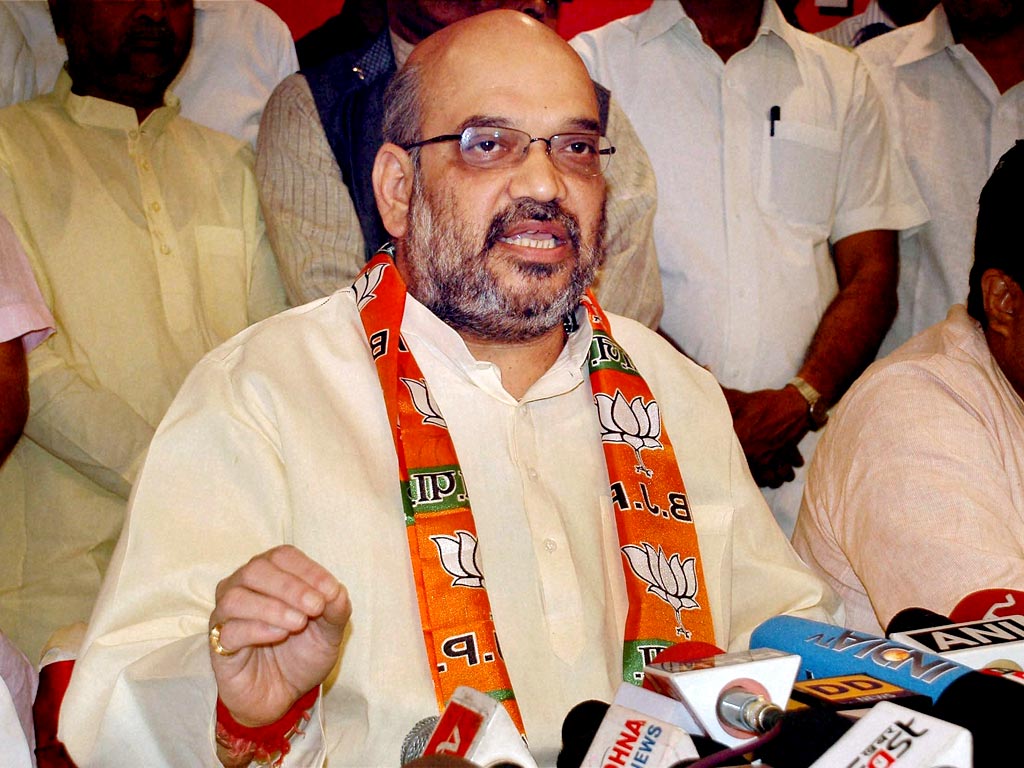SHAH AND AZAD CROSS SWORDS OVER J&K
Amit Shah

NEW DELHI: Politicking has begun in real earnest in Jammu and Kashmir as the political parties prepare for the Assembly elections by getting the battle lines drawn. The Congress and the BJP have been the first to exchange hot air, with both claiming that the border state could prosper only under their respective rule.
BJP president Amit Shah in his maiden speech after taking over the party claimed that the National Conference government in the state had crossed “all limits of corruption.” He equated the Abdullah family and without naming it seemingly the Nehru-Gandhi party of the Congress maintaining, “the two families have ensured that money does not reach the poor. We have to highlight this.’
Development will be the BJP mantra for the state, more in its purist form for Kashmir and laced with communalism for Jammu where the polarisation between religious communities has been increasing over the years. Shah claimed that the state will see development only when the BJP is in power in what he described as a “very sensitive state.”
Jammu and Kashmir is clearly a target area for the BJP and RSS in these polls with its 44 plus mission. Shah indicated this when he asked the cadres from across India to focus on the border state and ensure that a BJP government came to power there, as well as in UP, Bihar, Maharashtra and Haryana. He was categorical that the reach of the party had to be expanded so that it could remain in power at the centre for a long time.
The UPA government was attacked by him as being the most corrupt, and responsible for all scams. He said that the Lok Sabha polls was a defeat of dynastic politics, and of course went on to add that the voters had also rejected “appeasement and vote bank politics.”
Congress leader Ghulam Nabi Azad who is expected to lead the Congress into the fray in Jammu and Kashmir yet again said that only his party could guarantee the unity and integrity of the nation. He tried to sell the ‘secularism’ of the Congress insisting that there had been massive growth and development under its government.
Azad on his part urged the Congress workers to be aware of the designs and consequences of politics based on religion and region, particularly as played out in Jammu and Kashmir, and urged the voters to reject this. Congress leader Saifuddin Soz pitched in as well by maintaining that the Congress had paid attention to all parts of the state, and was best poised to form the government in the state. Former minister Ambika Soni too insisted that the Congress party would surge ahead of all others in the polls, and the enthusiasm of the workers was visible all across the state.
Kashmiri’s of course are watching and listening without comment. The cynicism is palpable, and as a young scholar said with a smile, “we have seen them again and again.”



